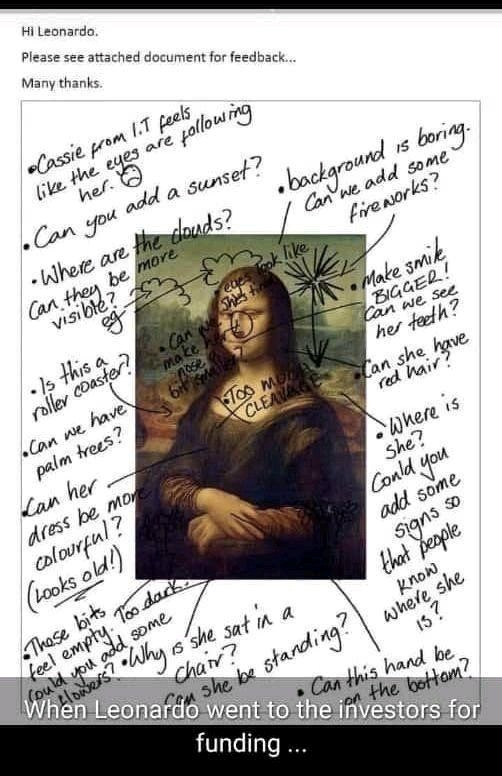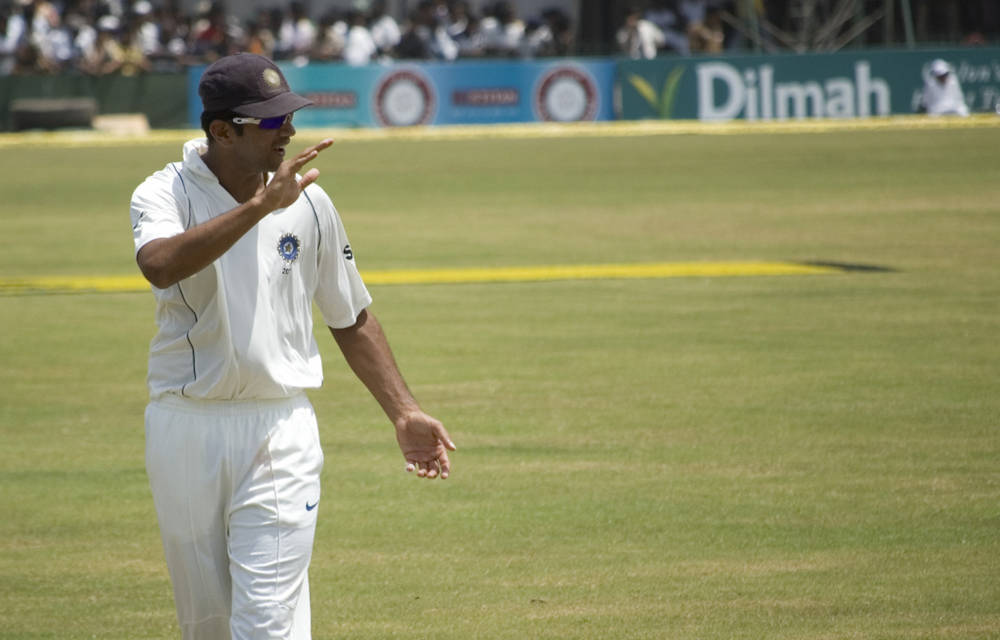[By Hashir Milhan (CC BY 2.0), via Wikimedia]
Good morning,
There is a lot of excitement in the world of Indian cricket right now thanks to Rahul Dravid, Indian men’s cricket team’s new head coach. Why it has caused a lot of excitement needs no explanation, but we would like to share an extract from Rohit Brijnath’s piece about him, from the book Rahul Dravid: Timeless Steel - Collected Writings on Indian Cricket’s Go-To Man, published in 2012.
Brijnath writes about Dravid: “He wanted to win, and if he took defeat manfully he also did so painfully. On the night after India exited the 2007 World Cup under his captaincy, on the phone he sounded as if he was dying.
“I liked him for this and for his willingness to discuss his own and sufficient imperfections. Because he wouldn’t flinch from honesty and you could challenge him on his thinking as captain or get him to laugh at his own unhurriedness. Because he understood talent is only lent to you for a while and that only ceaseless industry can allow for its consistent expression. Because he has a strong sense of himself, for even as kind bloggers would call him ‘unsung’, he’d say, no, enough has been sung about me.
“He was more than just a cricketer and it was evident in our meeting in October 2011. He had been invited to a discussion on the sporting mind, at the Bangalore launch of Olympic shooting gold medallist Abhinav Bindra’s autobiography.
“‘No speech, right?’ he insisted, for that would mean a month’s dutiful hard labour for him. No, I promised. Only a discussion.
“Except, on launch day, in the evening, he took me aside. ‘I’d like to make a short speech, is that okay?’
“And so he did, a charming, generous introduction about Bindra and his virtues and the challenge of the Olympics. He is nearly ten years older than the shooter and far more celebrated, but this was not his moment, he wanted Bindra to have the sun, and being in the shadows held no fear for him anyway. It was not Dravid at his best, it was simply just Dravid being himself.”
We think that is a good way to live. Have a good day!
In this issue
- What’s next for farm laws
- The pandemic and therapists
- Venture capital and art
What’s next for farm laws
In his recent column in The Indian Express, Pratap Bhanu Mehta writes on the government's withdrawal of farm laws. “The facade of the government’s omnipotence has cracked. That is a good thing for a democracy. But whether that leads to a new and constructive dialogue, and better reforms, or a sharpening of contradictions remains to be seen.”
One of the key decisions will have to be made on Minimum Support Price (MSP). How is it likely to go? Mihir S Sharma captures the complexity of it all in Business Standard.
Sharma writes, “Most of the farmers camped outside Delhi have reiterated that they do not intend to leave until the current MSP system is enshrined in law.
“Unfortunately for this demand, the current MSP system is unjust and unsustainable. A quick look at the most recent FCI (Food Corporation of India) numbers for the procurement of wheat and paddy in the kharif marketing season of 2021-22 will underline the injustice involved. Punjab and Haryana together have barely a fraction of India’s agricultural households, and they have the second- and third-highest agricultural income levels in the country (after Meghalaya). Yet 89% of the households benefited by FCI procurement in 2021-22 so far live in these two states, as is 95% of paddy procured under the MSP (including by state agencies, but paid for by the Union). As for unsustainability, the simple fact is that it is water-rich delta states like West Bengal that should be the focus of efforts to support paddy cultivation, and the semi-desert of the northwest where scarce groundwater is being pumped out at incredible rates to simulate the right climatic conditions.
“It is natural that the protesting farmers are unwilling to discuss this basic fact, since it throws a somewhat less flattering light on their demands.”
Dig deeper
- What the withdrawal of controversial farm laws means - Pratap Bhanu Mehta
- A Pyrrhic victory for protesters - Mihir S Sharma
The pandemic and therapists
What toll the pandemic has taken on people is well documented. What it has done to mental health professionals isn’t spoken about much. It is a narrative that Shephali Bhatt documented in The Economic Times earlier this year. The story got our attention when it received a special mention over the weekend for best articles recognised by the International Committee of the regional delegation of the International Committee of the Red Cross (ICRC) and the Press Institute of India (PII).
“Therapists across the country are experiencing an extreme sense of helplessness and burnout, with many having to reduce their work hours because of sheer mental exhaustion. Some have taken long, unplanned breaks, while a few have even dropped out of the profession.
“The caseload has gone up by 30% to 40% for a majority of therapists, with older clients relapsing even as they refuse to take on new ones.”
“‘I don’t know a single therapist who isn’t overworked and overbooked right now,’ says Mimansa Popat, a Mumbai-based psychotherapist and special educator with over 25 years of experience.
“What saddens her more is that she’s unable to tell colleagues to slow down. ‘I know they are headed towards a breakdown.’
“In the past, therapists rarely cancelled appointments. However, this has become increasingly common among mental health professionals over the last few months…
“Online therapy via video calls also has more distractions, adds Ishita Pateria, a counselling psychologist. ‘Clients get distracted even if you just change the spot from which you’re calling them.’ Audio lags and notifications popping up on screens on both sides don’t help either.’
“There’s also a degree of awkwardness with a client talking about their grief, crying while holding the phone in their hand and watching themselves cry, notes Medha Gupta, consulting clinical psychologist from Hyderabad. ‘I often tell them to switch their video off in such cases.’”
Dig deeper
Venture capital and art

(Via WhatsApp)
Found anything interesting and noteworthy? Send it to us and we will share it through this newsletter.
And if you missed previous editions of this newsletter, they’re all archived here.
Warm regards,
Team Founding Fuel
(Note: Founding Fuel may earn commissions for purchases made through the Amazon affiliate links in this article.)


